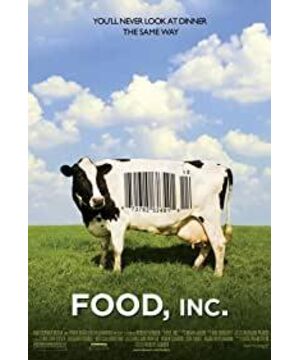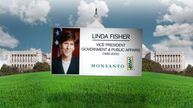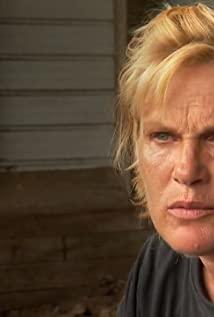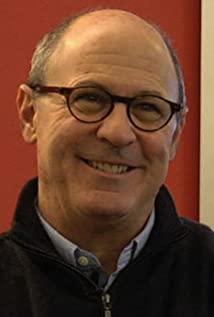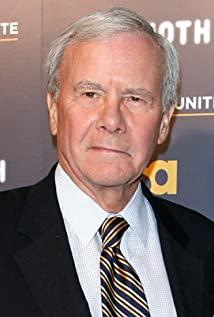Twenty years later, in 2009, the well-known American journalist and author Michael Pollan said in the documentary "Food, Inc." that the dazzling variety of choices in American supermarkets is actually an illusion. The veneer masks the grim reality of the large-scale industrialization of American agriculture. Behind countless commodities, there are actually only a few super agricultural enterprises and two crops of corn and soybeans. Yeltsin saw the huge advantage of American-style wealth, and the documentary "Food Company" wanted to help the audience recognize the shadow of this huge advantage.
Michael Poland has written two books on healthy eating in recent years, The Omnivore's Dilemma and In Defense of Food, and another author, Eric Schlosser (Eric Schlosser wrote Fast Food Nation, a best-selling book that exposed the ills of American fast food culture earlier, I have read all three books, so there is no strangeness in watching this documentary, Michael Poland and Eric Schlosser as point of view in the film. They repeatedly stress that the rapid development of agriculture in the past 50 years has brought about more changes in food production than in the 10,000 years before that. After the end of World War II, with the popularization of chemical fertilizers and pesticides and the economies of scale brought about by large-scale mechanized operations, traditional farms and pastures have been basically transformed into industrial production lines. Let's just say, you might have expected to hear pastoral songs, but now you're basically just hearing the roar of machines. When people get a lot of cheap food and no longer worry about food and clothing, they actually pay a high price.
Rachel Carson has pointed out the negative impact of fertilizer and pesticide use on the environment decades ago, and Michael Poles is now focusing on post-industrial food safety and health issues, such as animal cruelty, E The explosive spread of germs such as Coli and Salmonella, obesity caused by fast food, etc. In the industrialized operating system, chickens, cows, and pigs live in extremely inhumane conditions. The space is small, dim, and dirty, and it is difficult to separate food and excrement. Their sole purpose in coming to this world is to grow meat, and then enter the slaughterhouse to be turned into various meat products. The film collects a lot of candid pictures, and those animals that are not too sick or disabled are treated equally, and enter the slaughtering, dividing, and grinding system, and eventually become steak and hamburger patties.
No matter what pigs, cattle and sheep like to eat, in the food production line, they all eat corn products. U.S. corn yields are staggering, and it's super cheap under the government's agricultural subsidies. It is widely used in all aspects of food production, and it is not an exaggeration to call it a strong cornerstone of the American food system. The vast majority of chickens, cattle, pigs and even aquatic products raised in the United States use corn as food, and corn syrup is also heavily permeated in candy, soft drinks, and dairy products. Whether you're eating steak, grilled chicken, ham, or smoked salmon, all the way down to drinking Coke, you're actually consuming corn. The food we eat is becoming less and less nutritious, but in order to get the necessary nutrients, we have to eat more and more, which inevitably leads to a vicious circle.
Animals grow meat very quickly after eating corn. After people have eaten the food made from these animals, they will grow meat very quickly. In the documentary, a family of Latino immigrants was interviewed. Their parents were very busy raising their families and had neither money nor time to prepare three meals a day. They basically lived on fast food. American fast food is cheap and filling, but viewers need only look at a family's waistline to know the true price of cheap food. The father's diabetes was already severe and he was at risk of vision loss and even blindness.
There are not a few American families plagued by overweight. In fact, obesity has become a health hazard in the United States. On current trends, one in three Americans born after 2000 will suffer from diabetes. If so, no matter how Obama reforms and how successful the reforms are, the US healthcare system can only face one prospect: bankruptcy. Who can continue to unconditionally sing the praises of cheap when considering the huge increase in medical expenses caused by unhealthy diets?
Another problem brought about by changing the nature of animals is the proliferation of germs. Cows used to eat grass, but after being forced to eat corn, the digestive system was difficult to adapt, resulting in increased toxicity of the excrement. One of the direct consequences was the frequent occurrence of food poisoning cases caused by E. coli. A mom featured in the documentary became an advocate for food safety after her son died of E.coli from eating a hamburger. She often travels to the capital, Washington, calling on the government to strengthen supervision of the food industry.
The American food industry uses the slogan of "faster, fatter, bigger, cheaper". Although they can never add melamine to milk and then sell it with water, it does not mean that government supervision can be lacking. Driven by profit, it is difficult for food companies to put the long-term and fundamental interests of consumers in the most important position. If the government doesn't act, and if consumers don't wake up, America's high price for cheap food will continue.
Only pigs, cows, and sheep are happy, and those who eat pork, beef, and mutton are happy. Everyone shouldn't miss this documentary, but I recommend watching it after you've eaten pork, beef, and lamb. After watching a movie, it may take a long time for you to regain your interest in eating meat.
View more about Food, Inc. reviews


